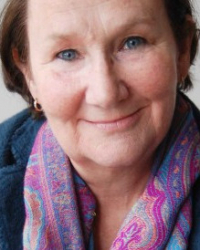The trials of friendship
Friendship is a fickle thing. It is also a great gift. People have many views on what a friend is. In a society where we have social media telling us we have so many hundreds of contacts, it is easy to lose sight of precisely what a friend is.
All of us are concerned about friendship; how many we have, whether they are really our friend, whether we can really trust them. We all have ‘paranoid’ moments about how popular we are, whether people like us, what people say about us. It is normal to tell ourselves that we do not care, we’re not bothered, if someone doesn’t like us and not being liked is a difficult lesson to learn. Making friends is like the ‘run up’ to falling in love with someone. We have to make ourselves vulnerable, we have to expose a little of our inner self in order to pierce beneath the surface of our outer shell.
Ralph Waldo Emerson, an American essayist and exponent of individualism said: “Friendship, like the immortality of the soul, is too good to be believed.” What did Emerson mean by that? Did he mean that friendship is not to be relied upon, that nobody can ever truly be our friend because they will never know us as we really are? Is friendship an illusion, like money, easier made than kept? Are we eventually going to be disappointed in our friends?
Upon first meeting a friend, we pass through the ideal state where we can see no fault in them and then something happens and we realise that we have misjudged them, they are not who we thought they were. Perhaps we are always trying to find a part of ourselves in our friends. Perhaps we are drawn to friends within whom we recognise part of ourselves. If that part is healthy and balanced then maybe the friendship will give and take in equal measure. It is certainly true that one friend can bring out the generous side of our nature whilst another one somehow finds our nasty side.
It is when the latter happens that we fall into a pattern where we unconsciously re-enact something from a former time in our lives. This is most likely to have occurred in our early childhood where the foundations for our future are mapped out like the remains of an archaeological dig. We become unconsciously drawn to a person we find difficult because it taps into that part of ourselves we find difficult. We like to understand and to be understood. We all long for that kind of recognition. At first we get on like a house on fire with our new friend because we share a level of understanding and recognition about our similarity.
One of the most difficult lessons for us all to negotiate is difference; the fact that everyone is different to us. So to find similarity in a person, even one that plays out as a negative quality, is a strong attraction. We may, for example, share with that person the experience of a difficult mother, a divorce or separation, a violent or aggressive father. We shore ourselves up with stories of a similar nature, of misunderstandings, mistakes, betrayals, harsh treatment; our friend acknowledges and understands our experiences. This feeling of similarity, that someone else ‘gets’ us, can go on for a long time: sometimes for many years.
Then one day something changes; we get ill, we forget something, we make the mistake of thinking that person will understand. However, the ‘damage’ that first attracted us is released and is re-played like echoes from the past. The sway of events reverts to all those times we have been hurt, betrayed or disappointed. The person we thought we knew, who we idealised, who we thought was like us; is it in fact different to us. There is no going back from this point onwards because what drew us together was not real; it was imaginary, an illusion. I think that this is the kind of thing Emerson meant; the illusory nature of friendship is just that: an illusion. This kind of friend chains you to the mistakes you made in the past.
Yet this seems very negative doesn’t it? Another interesting quote I found was this one: “Friends are like melons. Shall I tell you why? To find one good, you must a hundred try.” This makes me feel more positive. Maybe we can afford to be choosy about friends; perhaps friends aren’t meant to last for ever. Some are with you for a short time, some a bit longer. I try to avoid the idea of a ‘best friend’ as that seems exclusive. I am suspicious when people say that they have enough friends because that sounds complacent. Friendship has always interested me because it isn’t always easy. That’s it; mistakes are made and women’s friendships can often be confusing and exceptionally upsetting when they go wrong.

Find the right counsellor or therapist for you
All therapists are verified professionals
